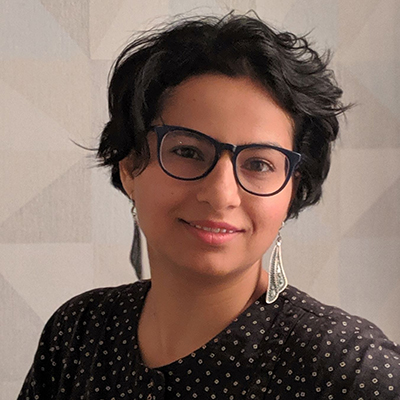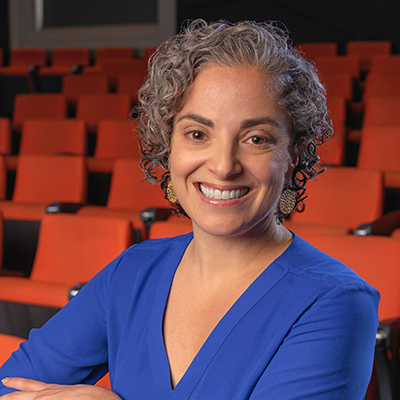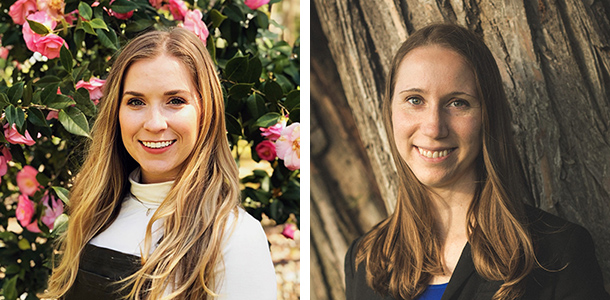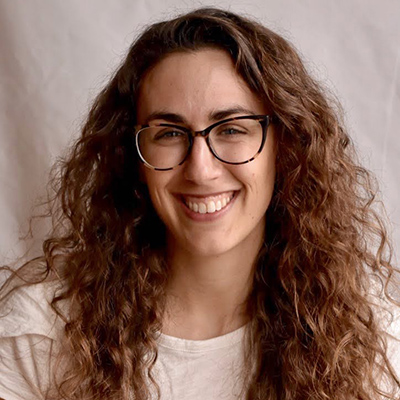Nine research projects received funding through the 2021 Carrie Chapman Catt Prize for Research on Women and Politics.
“This year’s recipients represent a diverse array of excellent research projects on women and politics,” said Karen M. Kedrowski, director of Iowa State University’s Carrie Chapman Catt Center for Women and Politics, which sponsors the annual awards.
The selection committee blind-reviewed the proposals and chose three projects as winners of the Catt Prize, five honorable mentions and one special mention. Each of the winning prize proposals will receive $2,000. Honorable mention awards will receive $1,000 each. The special mention project received $600, which was the total amount requested.
Prize winners for 2021 are:

Komal Preet Kaur, doctoral candidate in political science at the University of Colorado Boulder, for “The Paradox of Inclusive Institutions.” The study will assess underlying causes of negative evaluations of women and minority candidates and whether these consequently affect citizens’ political engagement, using both observational data and field-based survey experiments. The award will be applied to the cost of the fieldwork.

Peter McLaughlin, doctoral student in political science at the University of Oklahoma and research fellow at the Carl Albert Congressional Research and Studies Center, for “More Money, Less Credit: Measuring Gender Bias in Credit Allocation for Federal Spending Projects.” The project will examine whether congresswomen face a tougher challenge than congressmen in turning federal projects into electoral gains by conducting an online survey experiment featuring a newspaper excerpt about a fictitious member of Congress. The award will be used to pay online survey participants.

Jennifer Piscopo, associate professor of politics at Occidental College, and Katelyn Stauffer, assistant professor of political science at the University of South Carolina, for “‘She’s Too Ambitious’: Does Running for Office Penalize Women in Politics?” The study interrogates the notion of an ambition penalty, and tests whether women serving in elected office are punished for displays of progressive ambition and whether any penalty is harsher for women of color. The award will be used to fund the costs of a survey experiment.
Recipients of honorable mention awards are:
Elizabeth Brannon, post-doctoral fellow with a joint appointment at the Sié Chéou-Kang Center for International Security and Diplomacy in the Josef Korbel School of International Studies at the University of Denver and at Oxfam America, and Laura Huber, assistant professor of political science at the University of Mississippi, for “The Legacy of Female Combatants: Exposure of Female Combatants and Women’s Electoral Success in Uganda.” The study will examine the effects of exposure to women serving in violent roles during armed rebellion on post-conflict support for female candidates for political office. The award will go toward funding a survey experiment. 
Anirvan Chowdhury, doctoral candidate in political science at the University of California, Berkely, for “How Do Religiously Conservative Parties Mobilize Women? Theory and Evidence from India.” The study examines how political parties navigate gender norms in society and within the household, and the role that religiously conservative parties in India have in reducing the private and social costs of entering political spaces faced by women and their families. The award will fund the cost of phone surveys, interview transcriptions and text analysis of Twitter data.

Micayla Clark, doctoral candidate in political science at Georgia State University, for “Progress and Congress: Gender and Career Progression Among Congressional Staff.” The study will examine ambition among women in non-elected political positions and the gap between men and women in career advancement on Capitol Hill. The award will be used to purchase employment history records and demographic information variables of current and former employees to members of Congress from Legistorm.

Joshua Crutchfield, doctoral candidate in the African and African Diaspora Studies Department at the University of Texas at Austin, for “Imprisoned Black Women Intellectuals: Mae Mallory, Angela Davis, Assata Shakur, Safiya Bukhari, and the Politics of Abolition, 1955-1983.” The study, the first in-depth study of prison abolition from Black Power-era incarcerated black women’s perspectives, will outline these Black women intellectuals’ ideas about prisons and policing. The award will go toward travel costs to visit New York to view the collections at the Schomburg Center for the Study of Black Culture.

Hope McCaffrey, doctoral student in history at Northwestern University, for “White Women and Democratic Politics in the Antebellum North.” The study explores antebellum, free state white women’s expansionist and white supremacist politics by examining white women’s partisan textiles such as political banners, flags and dresses. The award will be used for travel costs to visit the New York Public Library and Clements Library at the University of Michigan.
A special mention award went to:
Nadia Brown, professor of government at Georgetown University; Christopher Clark, associate professor of political science at the University of North Carolina at Chapel Hill; and Anna Mahoney, administrative associate professor of women’s political leadership and director of research at the Newcomb Institute at Tulane University, for “Bridges: How Black Women Coordinate the Lawmaking Efforts of Identity-Based Caucuses.” The study will compare the experiences of three marginalized groups – Black women, Black men and white women – reflecting on their membership in caucuses and the benefits and drawbacks of participation. The award will be used to cover the costs of qualitative analysis training for the research team.

The annual research prize has been funded since 1994 by the Carrie Chapman Catt Center for Women and Politics through private donations. Since 1994, the Catt Center has awarded $144,100 to 133 projects.
Members of the 2021 Catt Prize Selection Committee are Iowa State faculty members Scott Feinstein, Jonathan Hassid, David Peterson, Mack Shelley, Amy Erica Smith and Robert Urbatsch, all with the Department of Political Science; Cassandra Collier and Alisa Stoehr, Women’s and Gender Studies Program; Sarah Dees, Department of Philosophy and Religious Studies; Kelly Winfrey, Greenlee School of Journalism and Communication; and Kedrowski, as well as doctoral candidate Carrie Ann Johnson, Department of English. Siobhan Barco, doctoral candidate in history at Princeton University; Rachel Blum, assistant professor of political science at the University of Oklahoma; Donna Hoffman, professor of political science at the University of Northern Iowa; Candice Ortbals-Wiser, professor of political science and criminal justice at Abilene Christian University, and Cherie Strachan, professor of political science and associate executive director of community engagement in the Office of Institutional Equity, Effectiveness and Success at Virginia Commonwealth University, also served on the committee. The committee was assisted by Ashley Marsh, administrative assistant for the Catt Center.